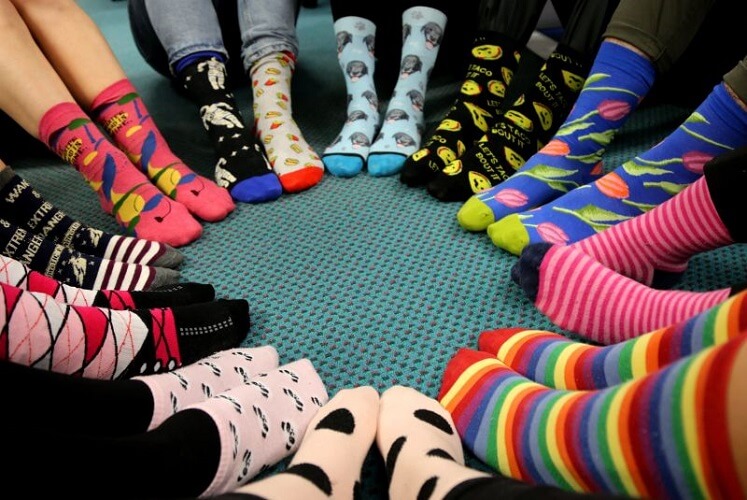Every country has idioms that only have a meaning there and that usually outside the territory do not have the same connotation. These so-called idioms are used in everyday life to refer to something in a similar way, that is, a person can use them to give an example of an opinion about something.
The Spanish course Barcelona offers to tourists is an excellent opportunity to learn these and more ways of communicating with a colloquial and relaxed language, with teachers who facilitate the process.

The Spanish language school Barcelona brings you several types of methodologies so that learning is not boring and so that you can make the most of the time you are visiting the city.
Besides being able to learn the language, the courses make you know about the history and culture of a place, how were the beginnings of the region you are visiting, what is the most important for its inhabitants and if they have any emblematic buildings to see that do not appear on the web pages.
It is vital that when you travel to another country, you learn some of these idioms because, besides creating a bond with the citizens, you will be able to express yourself in a better way and make all your needs understood.
In Barcelona, they have many idioms very different from the rest of the countries, so it is interesting to learn them and try to apply them in some conversation, as they are part of the Spanish culture.
Here you have a list of idioms with their respective meaning so you can apply them without problems in one of your trips as a tourist to the Spanish territory. You will see how they will become familiar to you little by little until you fully control their pronunciation.
Idioms and their meaning in English:
- Que va!: of course
- Vale: Okey
- ¡Hasta ahora!: See you later!
- ¡Ni de coña!: No way!
- Ser la polla: be good al something
- Ser la ostia: be the best
- ¡Joder!: idiom of complaint
- Ser guarro: a very dirty person
- Dar el coñazo o ser un coñazo: person who is annoying
- ¡Ostia!: idiom of complaint
- Darse una ostia o darse un ostión: take a blow
- Ser gafe: a person with bad luck
- Es coña: its a joke
- ¡Qué chorrada!: what a silly thing
- Me piro: I’m leaving
- Currar: working
- Otro de los modismos de España es Curro: work
- ¡Cómo mola!/Mola mogollón / Se sale / Mola Pila!: I like it!
- Ser la leche: ser divertido o muy bueno o entretenido
- ¡Qué pasa tronco!: Whats up dude?
- Estoy sin perras: I have no money
- Estar cabreado/a: I am angry
- Cabrearse / chinarse: get angry
- Hacerse el primo: play the fool
- Hacer el gilipollas: fool around
- Colegas: friends
- Flipar en colores o flipar: like very much
- Maja: nive
- Cachas: muscled
- ¡Que guay!: How nice!
- ¡Guay!: sorprise
- Otro de los modismos de España es Ser guay: funny
- ¡Qué morro tienes!: cynism
- Pillarse un pedo: be drunk
- Dar por culo: disturb
- ¡Qué te peten!: go to hell!
- ¡Que putada!: Whats a pain!
- Gilimemo / Gilipollas: Fool
- Encoñao / Enchochao: in love
- Churri: boyfriend or girlfriend
- La Pasma / Los Maderos: The police
- Otro de los modismos de España es La trena: the jail
- Ser un/a vigas: be very tall
- Gamberro / Macarra: criminal
- No enterarse de la misa la media: not to know anything
- Estar trillao/a / grillao/a / aventao/a : be crazy
Why is it important to learn idioms?
Many friendships have started with a tourist trip. Mainly to generate empathy in a city where you are a stranger and citizens may not know how to engage in conversation with a foreigner. Using some of these phrases can even be fun to break the ice.

The important thing is not to be embarrassed to mispronounce, the locals will surely understand that you are not from the area and may even help you to modulate better and probably teach you other idioms.
Language is in constant change, and what is fashionable today may be forgotten tomorrow, the youth often install new words to society, it is like an injection of renewal and mandatory update of the language that actually has a very long history.
What is said in the street, in everyday life, the words or phrases that are used are the watermarks of each era, it is no coincidence that there are old phrases that our grandmothers still say and that we try to replicate in a funny way. All generations have a marked way of speaking that evolves over time and is appropriated by new generations
What kind of Spanish courses are there?
There are specialized websites that offer courses and offer them at a distance. If you are a person who likes to socialize, you should probably choose a place where you can study in person, meet new people and get closer to other circles.
If instead, you prefer to be comfortable at home or take the course while traveling, the idea is to do it virtually. The materials are the same, in fact, you can contact your teacher as many times as you need, and he/she will answer any questions you may have.
Another thing to keep in mind is that these courses provide study materials, so you will have tools to nourish yourself with information about the countries you visit and recorded classes at your disposal to take when you have time.
The truth is that taking online courses allows you to speed up your time and learn from the comfort of your home without wasting time traveling or depending on other vehicles. What many face-to-face courses cannot achieve and that has been installed mainly after the pandemic is comfort. Virtual courses make it possible not to travel from one place to another and prioritize urgent activities.







